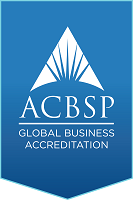Program Overview
The fully online Master of Business Administration (MBA) at Columbia College is designed for working professionals aiming to advance in their current role or transition into leadership and management. This flexible program combines foundational business theory with real-world applied practice, allowing you to tailor your coursework through one of six specialized emphasis areas. Specializations include Accounting, Human Resources Management, Real Estate Management, IT Project Management, International Business, and Supply Chain Management and Logistics. Undergraduate students at CC can pursue an accelerated pathway by taking up to three MBA courses as part of their undergraduate studies and jumpstart a career in business.



